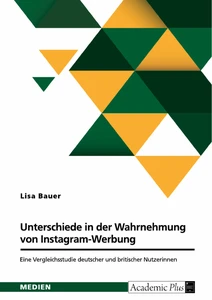<b>[openpublishing template="presentation" get_by_id="1496060"] : </b></br>https://api.openpublishing.com/resource/v2/document.1496060[:basic,non_academic.realm_genres.*]&cache=yes
<b>[openpublishing template="presentation" get_by_id="1495539"] : </b></br>https://api.openpublishing.com/resource/v2/document.1495539[:basic,non_academic.realm_genres.*]&cache=yes
<b>[openpublishing template="presentation" get_by_id="1494591"] : </b></br>https://api.openpublishing.com/resource/v2/document.1494591[:basic,non_academic.realm_genres.*]&cache=yes
<b>[openpublishing template="presentation" get_by_id="1493273"] : </b></br>https://api.openpublishing.com/resource/v2/document.1493273[:basic,non_academic.realm_genres.*]&cache=yes
<b>[openpublishing template="presentation" get_by_id="1474076"] : </b></br>https://api.openpublishing.com/resource/v2/document.1474076[:basic,non_academic.realm_genres.*]&cache=yes
What Is a Bachelor’s Thesis?
A bachelor’s thesis is an academic capstone project that marks the culmination of a bachelor’s degree program. Its purpose is to apply and deepen the knowledge and skills acquired during your studies. Through this project, you are expected to demonstrate your ability to independently address a scholarly problem. This includes conducting research, analyzing data, and presenting your findings in a written format. Typically, a bachelor’s thesis ranges from 30 to 60 pages and is submitted at the end of your program.
Objectives and Methods of a Bachelor’s Thesis
The main goal of a bachelor’s thesis is to scientifically investigate and answer a specific question. Various methods are available, depending on the subject area and topic. Common methods include qualitative and quantitative research, literature analyses and case studies. It is important that the chosen method fits the question and is presented in a comprehensible way. A clear methodological approach is crucial for the quality and credibility of the work.
How Do I Write a Bachelor’s Thesis?
Finding a topic
Sounds simple? Depending on your field of study, selecting a topic can already be a challenge! Make sure to choose a subject that genuinely interests you—this will help you stay motivated. A bonus is if the topic has current relevance.
Here are some additional tips to guide you:
- University Guidelines: Many universities provide handouts or guidelines for writing a bachelor’s thesis, often made available by your institution or professor.
- Your Own Notes: Review your notes from past seminars. Is there a topic you’ve already come across that you’d like to explore in more depth?
- Future Academic and Career Goals: Does the topic align with your future aspirations? It might even enhance your résumé!
- Your Advisor’s Research Focus: If your advisor is researching a topic that also interests you, this could be the perfect opportunity to consult with an expert in the field.
- Narrowing the Scope: Choose a topic that can be effectively tackled within the allotted time. Clearly define its scope.
Still looking for inspiration? Check out our shop, where you’ll find the latest theses from various disciplines. We’ll also show you how to refine your topic into a clear research question in four simple steps.
Choosing an Advisor
The right advisor often becomes apparent based on their research focus within your field. However, if you have the option to choose, make sure you select someone you can work well with. After all, your advisor’s role is to support you throughout the writing process, clarify questions, and provide constructive feedback. At smaller departments, you may already know all potential advisors, giving you a solid basis for your decision. If you’re unsure about who to approach, check your faculty’s website for a list of staff members, including their research areas and publications, to find someone whose expertise aligns with your topic. Additionally, talking to fellow students about their experiences with different advisors can offer valuable insights.
Methodology
Most bachelor’s theses include a methodology section where you must scientifically justify your chosen research methods. These methods vary significantly depending on your field of study. The most commonly used methods include:
- Surveys / Expert Interviews
- Qualitative Content Analysis
- Literature Review
- Personal Observations / Case Studies / Experiments
In our tutorial, we explain how to select the right research methodology for your topic.
Structure
The structure of your thesis forms the foundation of your argument and guides readers from the introduction to the conclusion. Be sure to follow your university’s guidelines. Generally, your thesis should include the following sections:
- Title Page
- Abstract (if applicable)
- Table of Contents
- List of Figures and Tables (if applicable)
- List of Abbreviations (if applicable)
- Introduction (context of the research topic, research gaps, key concepts, research objectives, and a preview of the main body)
- Main Body (methodology, arguments, research findings)
- Conclusion (key insights, answers to the research questions, limitations of your research, and an outlook)
- References or Bibliography
- Appendices (if applicable)
- Declaration of Academic Integrity
Optional:
- Dedication and Acknowledgements
- Gender Disclaimer
Curious about how to maintain a clear narrative thread? Check out our tips on the topic. We’ve also compiled detailed guidance on writing a strong introduction and a perfect conclusion, as well as advice on inclusive language.
Writing Process
Here are the key tips to help you develop a clear and effective academic writing style for your bachelor’s thesis:
What makes a text easy to understand?
- Simple Sentences: Avoid overloading your text with technical terms; instead, use clear, concrete language that is widely understood. Write short sentences and minimize the use of subordinate clauses.
- Logical Structure: Ensure that the internal and external structure of your text work together. Maintain a coherent narrative and connect your sentences clearly. Use formatting tools such as paragraphs, subheadings, and highlights to make your structure obvious.
- Conciseness: Strike a balance between overly short sentences and long-winded, complex ones. Present your ideas succinctly and to the point.
- Clarity and Examples: Avoid presenting your arguments in an overly dry manner. Use examples where appropriate, but don’t overdo it.
- Technical Terms and Foreign Words: While these are essential in academic writing, make sure to use them correctly and in the right context.
- Avoid Informal Language: Steer clear of filler words like “kind of,” “maybe,” and phrases like “I believe” or “I think.”
Practical Tips: How to Improve Readability
- Read Your Text Aloud: Do you stumble over certain sections? That’s often a sign that a sentence is too long and needs to be shortened.
- Use Punctuation Effectively: Colons and dashes are great tools to emphasize your ideas.
- Break Up the Text: Use at least two to three paragraphs per page. A solid wall of text offers no visual breaks, making it harder for readers to follow.
- Ensure Smooth Transitions: Start new points with a logical flow rather than abruptly. This creates a more enjoyable reading experience by guiding your readers seamlessly from one idea to the next.
- Frame Your Working Title as a Question: This keeps your argument focused and helps you avoid straying from the central topic.
- Use Synonyms: Varied wording keeps your text lively. You can find helpful synonym dictionaries online. Be cautious with technical terms, though—misusing synonyms can change their meaning.
You can find everything you need to know about academic writing in our collection.
Revision and Proofreading
Take your time and review your entire text calmly, ideally one or two days after finishing the writing process. This helps you gain some distance and approach your work with a fresh perspective.
Check for spelling, grammar, and stylistic issues. Ensure that all sources are properly cited and included in the bibliography, and format your thesis according to your university’s guidelines. Finally, have one or two friends or family members proofread the entire text. It’s helpful to get feedback from people outside your field to ensure your explanations are clear and easy to understand.
Printing and Submission
The final step is to prepare all required documents, adhere to your university’s submission guidelines (e.g., number of copies, deadlines, digital version), and submit your bachelor’s thesis on time. It’s a good idea to request a receipt as proof of submission.
Common challenges and how to overcome them
Time Management
- The most common issue: running out of time. You can avoid this by creating a detailed schedule with realistic milestones right from the start. There are plenty of templates available online to help you with this.
- Work on your thesis daily to maintain steady progress—even if it’s just for half an hour some days.
- Make sure to schedule breaks and leisure time to avoid burnout.
Motivation Issues
- Set small, achievable goals to create a sense of accomplishment.
- Connect with classmates or join writing groups for mutual support.
- Reward yourself when you reach milestones.
Dealing with Writer’s Block
- Free Writing: Just start writing—anything—and don’t stop for at least five minutes. Avoid correcting mistakes or refining your language; simply let your ideas flow. This creative exercise helps establish a writing routine and organizes your thoughts.
- Change of Scenery: Working in different locations can spark new inspiration.
- Creative Breaks: Let your text rest for at least a day. This allows your brain to process and solidify the information, often leading to fresh ideas and insights.
- Writing Rituals: Establish rituals like going for a walk after completing a chapter, starting each session with a cup of Earl Grey, listening to music from a specific band, or updating a friend on your progress. Find what helps you focus.
- Personal Productivity Cycle: Night owls shouldn’t force themselves to write early in the morning, and early risers shouldn’t wait until the afternoon to start working.
- Consistency: Write regularly, even if it’s just one paragraph per day. Making writing a daily habit helps reduce anxiety.
- Seek Feedback: Input from your advisor or friends can offer valuable new perspectives.
Finding Literature and Sources
- Utilize university libraries, including their online catalogs, and academic databases.
- Browse the GRIN shop for relevant materials.
- Check the reference lists of important books and articles to discover additional sources (the “snowball method”).
Addressing Methodological Uncertainty
- Refer to textbooks and academic articles in your field.
- Discuss your approach with your advisor or fellow students.
- Make use of online resources and tutorials.
- Take a look at our collections: Topic Finding, Research & Co., Sources & Citation and Formatting in Word and take a look at our tutorials.
Lack of Feedback from Your Advisor
- Schedule regular, planned meetings.
- Prepare specific questions and topics to make the meetings productive.
- If feedback takes too long, follow up proactively and consider seeking advice from other faculty members as an alternative.
Key Takeaways
What Is the Purpose of a Bachelor’s Thesis?
The main purpose of a bachelor’s thesis is to investigate and answer a specific research question in a scholarly manner. Through this final project, you demonstrate your ability to conduct independent research and contribute new insights to your field.
How Do I Choose a Topic for My Bachelor’s Thesis?
Select a topic that genuinely interests you or one you’ve already explored during your studies. Be sure to narrow it down—time for writing your bachelor’s thesis is limited.
What Makes a Bachelor’s Thesis Excellent?
An excellent bachelor’s thesis is characterized by a clear research question and a logical structure. The argumentation should be coherent and well-supported by reliable sources. Additionally, formal accuracy, including proper grammar, spelling, and citation, is crucial. Lastly, the thesis should be well-written and visually appealing, leaving a strong impression on your advisors.
Beispiele für sehr gute Bachelorarbeiten aus unserem Imprint AcademicPlus:
Frequently Asked Questions
Start by selecting a topic, choose an advisor, develop a clear structure, pick an appropriate methodology, and work steadily on your writing process to complete your thesis successfully.
Pick a topic that personally interests you and aligns with your advisor’s research focus. Take into account your university’s guidelines and your future academic and career goals.
The choice of methodology depends on your topic and field of study. Common methods include surveys, expert interviews, qualitative or quantitative analysis, and literature reviews.
A bachelor’s thesis should include at least the following sections: introduction, main body (methodology, arguments), conclusion, and a bibliography. Use your university’s guideline as a reference.
Allocate sufficient time for each step, work regularly and systematically, and seek frequent feedback from your advisor.
Do you like our magazine? Then sign up for our GRIN newsletter now!









